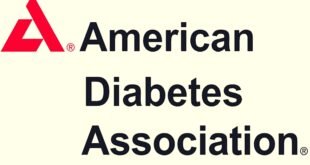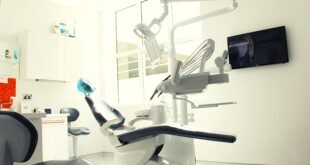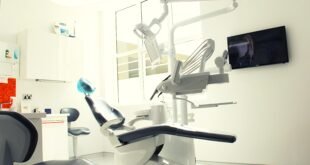Introduction
Wilderness Dental Care
In the heart of the untamed wilderness, where the air is crisp and the landscapes are breathtaking, lies a unique challenge—Wilderness Dental Care. While embarking on thrilling adventures in the great outdoors, the last thing on your mind might be your dental health. Yet, overlooking this aspect of self-care can lead to discomfort, pain, and unforeseen complications amidst Wilderness Dental Care the tranquility of nature. In this comprehensive guide, we will navigate the intricate terrain of wilderness dental care, offering Wilderness Dental Care insights and practical wisdom to ensure that your radiant smile remains your steadfast companion during your escapades into the wild. Whether you’re a seasoned outdoor enthusiast, a first-time camper, or an intrepid explorer, this Wilderness Dental Care guide will equip you with the knowledge and tools to embrace the wonders of nature with confidence.
So, as we embark on this journey through the wilderness, let us explore the vital role of dental care in your outdoor adventures, discover the nuances of oral hygiene in nature’s realm, and learn how to handle dental emergencies when help is far from reach. Join us in understanding that nurturing your smile amidst nature’s majesty is not only about preserving your dental health but also about cherishing the bond between you and the untamed world that surrounds you.
Wilderness Dental Care
Hiking, Camping, and Dental Hygiene
Exploring the wilderness Wilderness Dental Care often means being far away from modern conveniences, including dentists. Neglecting dental hygiene can cause toothaches, Wilderness Dental Care infections, and other Wilderness Dental Care dental problems that can quickly turn your outdoor getaway into a painful experience.
Nutrition and Oral Health in the Wild
Your diet in the wilderness might differ from your everyday meals. Understanding how nutrition impacts your oral health can help you make better food choices while on your outdoor adventures.
Wilderness Dental Care
Dental Emergencies What to Do
Accidents happen, even in the wilderness. Knowing how to handle dental emergencies can mean the difference between a minor inconvenience and a major problem.
Packing the Essentials
Before heading out, ensure you have a dental kit that includes a toothbrush, toothpaste, dental floss, and mouthwash. These items are lightweight and easy to carry.
Water: Your Best Friend
Staying hydrated is crucial for your overall health, including your oral health. Drinking water helps wash away food particles and bacteria that can lead to tooth decay.
Brushing and Flossing Techniques
Proper brushing and flossing are essential. Use a pea-sized amount of toothpaste and brush for at least two minutes, cleaning all surfaces of your teeth. Flossing removes debris from between your teeth.
Toothache
If you experience a toothache, rinse your mouth with warm water and floss to remove any trapped debris. Over-the-counter pain relievers can help ease pain temporarily.
Broken Tooth
If a tooth breaks, rinse your mouth gently with warm water and apply a cold compress to reduce swelling. Seek professional dental care as soon as possible.
Lost Filling or Crown
If a filling or crown falls out, keep it in a safe place and see a dentist as soon as you can. In the meantime, you can use over-the-counter dental cement to cover the affected area.
Infection
Signs of a dental infection include swelling, pain, and fever. Rinse your mouth with warm saltwater and take over-the-counter pain relievers. Seek immediate medical attention.
Toothpaste Alternatives
In the wild, you might run out of toothpaste, but nature offers alternatives. They can use crushed mint leaves or baking soda as effective natural toothpaste substitutes. They help freshen your breath and maintain oral hygiene.
Chewing Gum
Sugar-free chewing gum can serve as an emergency oral hygiene tool. Chewing gum stimulates saliva production, which helps cleanse your mouth naturally. Look for gum containing xylitol, a natural sweetener known to prevent tooth decay.
Oral Hygiene Tools
Consider carrying portable dental hygiene tools such as dental picks and interdental brushes. These handy items can remove stubborn food particles and plaque from between your teeth, even when you’re far from civilization.
Wilderness Dental Care

Cold Weather
In extremely cold conditions, your teeth can be sensitive to temperature changes. Avoid consuming boiling or freezing foods and beverages, as this can lead to discomfort. Protect your mouth with a scarf or mask to minimize exposure to icy air.
Wilderness Dental Care
High Altitudes
At high altitudes, the air is thinner, which can lead to dry mouth and increased vulnerability to dental issues. Drink plenty of water to stay hydrated, and consider using a moisturizing mouth spray to combat dryness.
Saltwater Exposure
If you’re near the sea, be cautious of saltwater. Saltwater can be abrasive and may erode tooth enamel if exposed frequently. Rinse your mouth with fresh water after swimming in the ocean and avoid consuming seawater.
Pre-Trip Dental Check
Before embarking on a wilderness adventure, schedule a dental checkup. Your dentist can identify any potential issues and provide guidance on maintaining oral health during your trip.
Post-Trip Dental Evaluation
After your wilderness adventure, it’s a good idea to visit your dentist again. They can assess any damage or changes to your oral health and address any concerns that may have arisen during your trip.
Final Thoughts
Wilderness dental care is a crucial aspect of outdoor exploration that is often overlooked. By following these tips and being prepared, you can enjoy your time in the great outdoors without worrying about dental emergencies or discomfort.
Remember, good oral hygiene is not only essential for your overall health but also for your enjoyment of nature’s wonders. So, take care of your teeth, stay prepared, and continue to embrace the beauty of the wilderness with a confident smile.
Proper Brushing Techniques
While in the wilderness, it’s essential to maintain proper brushing techniques. Use gentle, circular motions to clean your teeth and gums thoroughly. Be mindful of not brushing too hard, as this can damage your tooth enamel.
Using a Water Flosser
A portable water flosser can be a valuable addition to your dental kit. It helps remove debris and plaque between teeth and along the gumline. Carry enough water for this purpose.
The Importance of Regular Rinsing
Rinse your mouth with clean water after every meal or snack. This helps remove food particles and prevents bacteria from multiplying in your mouth. Consider using an antimicrobial mouthwash for added protection.
Toothbrush Maintenance
Keep your toothbrush clean and dry when not in use. Store it in a well-ventilated container to prevent the growth of bacteria. Replace your toothbrush or toothbrush head regularly, especially if it becomes frayed or worn.
Herbal Mouthwash
You can make a natural mouthwash using herbs like sage, thyme, or tea tree oil. These have antibacterial properties that can help maintain oral hygiene.
Clove Oil for Toothaches
Clove oil contains eugenol, a natural numbing agent. Applying a small amount of clove oil to a painful tooth can provide temporary relief from toothache while awaiting professional help.
Dental First Aid Kit
Besides your regular dental kit, consider including dental first aid items:
Dental wax for temporary filling of cavities.
Cotton balls for stopping bleeding from minor oral injuries.
Sterile gauze for wrapping and protecting damaged teeth.
An instant cold pack to reduce swelling in case of facial injuries.
Dental Preparedness for Group Trips
If you’re leading or part of a group wilderness expedition, ensure everyone is aware of dental care practices and the location of the dental kits. Designate someone with basic dental first aid knowledge to handle emergencies.
Supervise Brushing
If you’re camping with children, supervise their brushing routine to ensure they maintain proper oral hygiene. Encourage them to enjoy the experience by using fun, camping-themed toothbrushes and toothpaste.
Pack Child-Friendly Dental Supplies
Include child-sized toothbrushes, toothpaste, and floss in your dental kit to accommodate younger members of your group. We designed these supplies to make dental care more appealing to kids.
Teach Dental Awareness
Educate children about the importance of dental care in the wilderness. Explain how maintaining oral hygiene can help them enjoy the adventure without dental discomfort.
Wilderness Dental Care

Special Considerations
Senior adventurers may have unique dental needs, such as denture care or medications that affect oral health. Ensure they have access to the supplies and information to manage their dental well-being.
Wilderness Dental Care
Regular Check-Ins
If you’re traveling with seniors, schedule periodic check-ins to assess their oral health. Address any concerns promptly to prevent dental issues from escalating during the trip.
Eco-Friendly Dental Supplies
Consider using eco-friendly dental products, such as biodegradable toothbrushes and natural toothpaste. This choice minimizes the environmental impact of your dental care routine.
Leave No Trace
Practice responsible wilderness ethics by disposing of dental waste properly. Use sealable bags to store used dental floss and dispose of them in designated waste receptacles when you return to civilization.
Altitude-Related Dental Issues
Altitude sickness can affect your oral health. Be aware of symptoms like dry mouth and swollen gums. Staying hydrated and using moisturizing mouth sprays can help mitigate these issues.
Urban Dental Hygiene
Maintaining good oral hygiene shouldn’t stop when you return from your wilderness adventure. Continue regular brushing, flossing, and dental check-ups to ensure your teeth remain in excellent condition.
Final Thoughts
Wilderness dental care is essential for adventurers of all ages and backgrounds. By adapting your dental care routine to the specific needs of your group and the environment, you can ensure a safe and enjoyable outdoor experience for everyone.
Caution with Food
When camping in the wilderness, be cautious about storing and disposing of food. Food residues can attract wildlife, and encounters with animals can lead to dental injuries. Keep your food sealed and away from your sleeping area.
Dental Safety During Wildlife Observation
If you’re a wildlife enthusiast, dental safety is crucial. Be mindful of your surroundings when observing animals and avoid sudden movements that could cause dental accidents.
Self-Reliance
Solo adventurers must be self-reliant with dental care. Ensure you have a comprehensive dental kit and are well-versed in dental first aid procedures. Familiarize yourself with natural remedies for dental issues.
Communication Device
Carry a communication device, such as a satellite phone or a locator beacon, in case of dental emergencies. Being able to call for help can be a lifesaver in remote areas.
Hydration and Oral Health
In hot, arid environments, staying hydrated is essential for both overall and oral health. Dehydration can lead to dry mouth, which increases the risk of dental problems. Drink water regularly to maintain saliva production.
Protecting Dental Supplies
Extreme heat can affect the quality of dental supplies. Store your dental kit in a cool, shaded place to prevent toothpaste and other items from melting or becoming less effective.
Avoiding Frozen Supplies
In extremely cold conditions, dental supplies like toothpaste and floss can freeze. Keep them inside your clothing to maintain their usability.
Minimize Exposure
In freezing temperatures, limit your exposure to the cold air to reduce the risk of tooth sensitivity and discomfort. Cover your mouth with a scarf or mask when needed.
Long-Term Dental Considerations
For extended wilderness trips, plan for long-term dental care. Bring extra supplies and consider a dental checkup before departing to address any potential issues in advance.
Replenishing Supplies
If your trip extends longer than expected, find opportunities to replenish your dental supplies from nearby towns or settlements if possible.
Final Thoughts
Wilderness dental care is a multifaceted aspect of outdoor adventures that demands flexibility, preparedness, and adaptability. Whether you’re a solo adventurer, part of a group, young, old, or exploring in extreme conditions, maintaining good oral health is key to enjoying your time in the wild.
Water Purification
In the wilderness, water sources may not always be clean or safe for oral hygiene. Ensure you have a reliable water purification method, such as water purification tablets or a portable water filter, to make clean water available for dental use.
Avoid Using Natural Water Sources
Resist the temptation to use natural water sources, like streams or rivers, for rinsing your mouth or dental supplies. These sources may contain harmful bacteria that can lead to infections.
Wilderness Dental Care

Medical Conditions
If you or someone in your group has a medical condition that affects oral health, such as diabetes, be extra vigilant with dental care. Uncontrolled medical conditions can exacerbate dental problems.
Wilderness Dental Care
Medication Awareness
Some medications can cause dry mouth or other oral issues. Ensure everyone in your group is aware of any medication-related dental risks and knows how to manage them.
Responsible Disposal
Abide by Leave No Trace principles with dental waste. Dispose of used dental floss, tissues, and other waste properly. Carry a small container to collect and pack out your dental waste.
Biodegradable Dental Supplies
Consider using biodegradable dental supplies to minimize your environmental impact. Biodegradable toothbrushes and dental floss options are available and reduce waste in natural settings.
Learning from Indigenous Knowledge
In some wilderness areas, indigenous communities have long-established oral hygiene practices using natural remedies. If you are in an area with indigenous knowledge, consider learning from and respecting these practices.
Cultural Sensitivity
If you interact with indigenous communities during your wilderness trip, be culturally sensitive and seek permission or guidance if you want to incorporate or share their dental traditions.
Pet Dental Health
If you’re camping with pets, don’t forget about their dental health. Dental chews and toys can help maintain their oral hygiene, preventing discomfort during the trip.
Pet Dental First Aid
Include pet-specific dental first aid supplies, such as canine toothpaste and a pet toothbrush, in your camping gear if you have furry companions.
Wilderness Dental Care
Wilderness Dental Care
Conclusion
Prioritizing wilderness dental care is essential for a safe and enjoyable outdoor experience. By following these tips and maintaining good oral hygiene habits, you can ensure that your dental health remains intact while exploring the beauty of the great outdoors. In the wilderness, taking care of your dental health is an essential part of ensuring a safe and enjoyable experience. By following these tips, maintaining good oral hygiene habits, and being prepared for dental emergencies, you can explore the great outdoors with confidence. Wilderness dental care is a complex yet vital aspect of outdoor exploration. By considering factors like water sources, special needs, environmental responsibility, and cultural awareness, you can enhance your dental preparedness for the wilderness.
Wilderness Dental Care
Wilderness Dental Care
FAQs
How can I prevent dental issues while camping?
To prevent dental issues while camping, pack a dental kit, stay hydrated, and choose healthy snacks. Avoid sugary and acidic foods.
What should I do if I forget my toothbrush on a camping trip?
In case you forget your toothbrush, you can use a clean piece of cloth or gauze to rub your teeth gently. Don’t forget to floss.
Are there any natural remedies for toothaches in the wilderness?
Chewing on a piece of clove or applying a cold compress can help ease toothache pain temporarily.
How can I store my dental kit in a backpack efficiently?
Use a small, waterproof bag or container to store your dental kit in your backpack, ensuring it stays dry and easy to access.
Is it essential to see a dentist after a dental emergency in the wilderness?
Yes, it is crucial to see a dentist after a dental emergency in the wilderness to assess the extent of the damage and receive proper treatment.
 Health Pro Techs Top Health Products Review
Health Pro Techs Top Health Products Review








Thank you for your sharing. I am worried that I lack creative ideas. It is your article that makes me full of hope. Thank you. But, I have a question, can you help me?
Thanks for sharing. I read many of your blog posts, cool, your blog is very good.